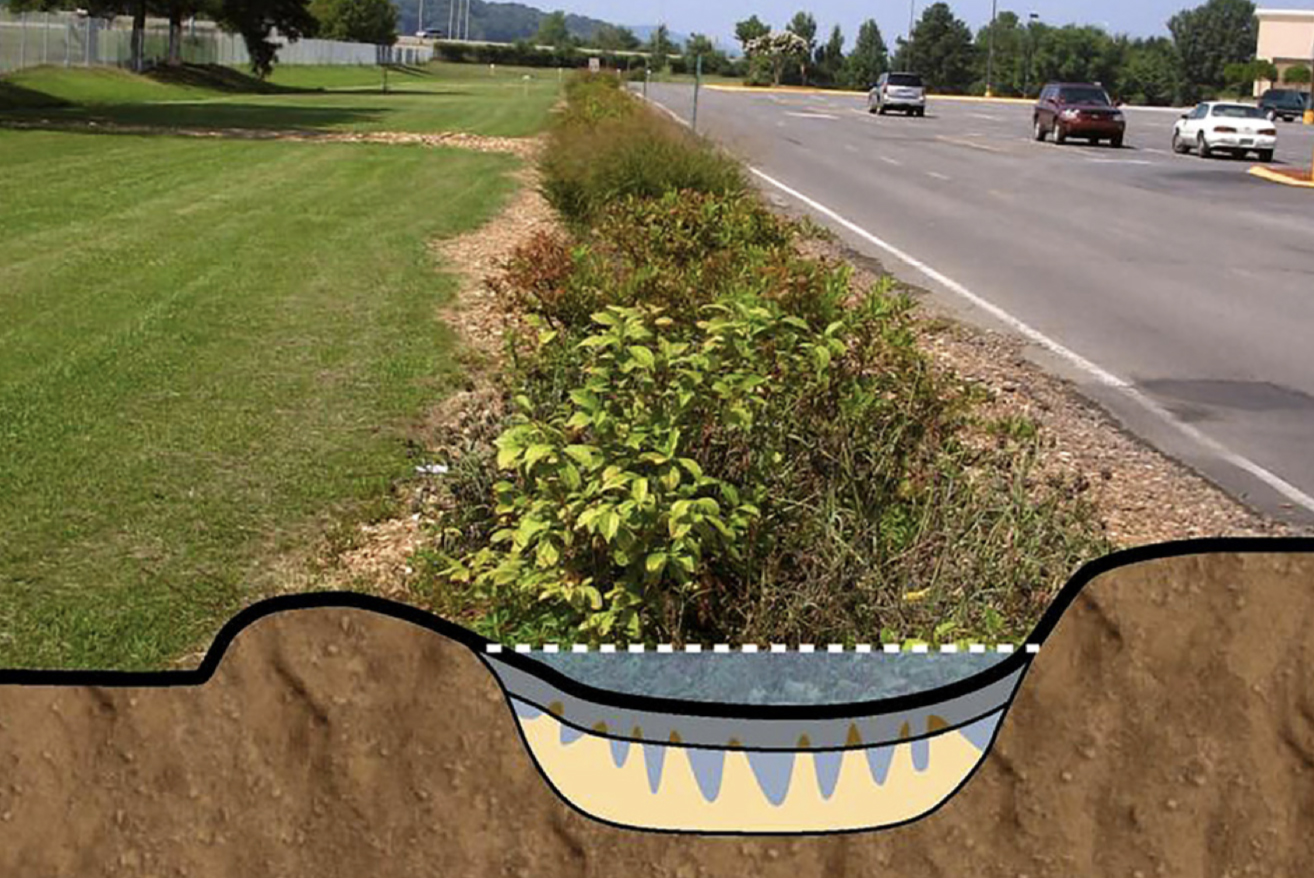Landscaping

Rain gardens catch, filter, and hold stormwater. They are simple gardens designed in pocket-like depressions to capture rainwater from your rooftop, driveway, and upland areas. They allow the rainwater to then slowly soak into the ground over a period of a day.
If you are not collecting your roof runoff in a rain barrel, you can extend your gutter downspout to flow into a rain garden so that your roof runoff infiltrates and provides groundwater recharge.
Rain garden benefits include following:
- filter pollutants and reduce and slow down stormwater runoff
- can be designed to create stunning landscape features
- can include a variety of plants to attract birds, butterflies, and other wildlife
- do not breed mosquitoes because they drain within 48 hour
Rain gardens typically are landscaped with native plants that require occasional weeding as well as watering in times of drought. They can be built by homeowners or professionally designed, placed in low-lying areas in your lawn, and designed to hold 6 to 18 inches of water.
If you are not collecting your roof runoff in a rain barrel, you can extend your gutter downspout to flow into a rain garden so that your roof runoff infiltrates and provides ground water recharge. Among their many benefits, rain gardens:
- Filter pollutants and reduce and slow down stormwater runoff
- Can be designed to create stunning landscape features
- Can include a variety of plants to attract birds, butterflies, and other wildlife
- Do not breed mosquitoes because they drain within 48 hours
Rain gardens are typically landscaped with native plants that require occasional weeding as well as watering in times of drought. They can be built by homeowners or professionally designed, placed in low lying areas in your lawn and designed to hold 6 to 18″ of water.
More Information
For more information on installing rain gardens, check out the Alabama Extension publication How to Install a Rain Garden. For information on watershed stewardship, visit the Alabama Watershed Stewards Program webpage at www.aces.edu.

